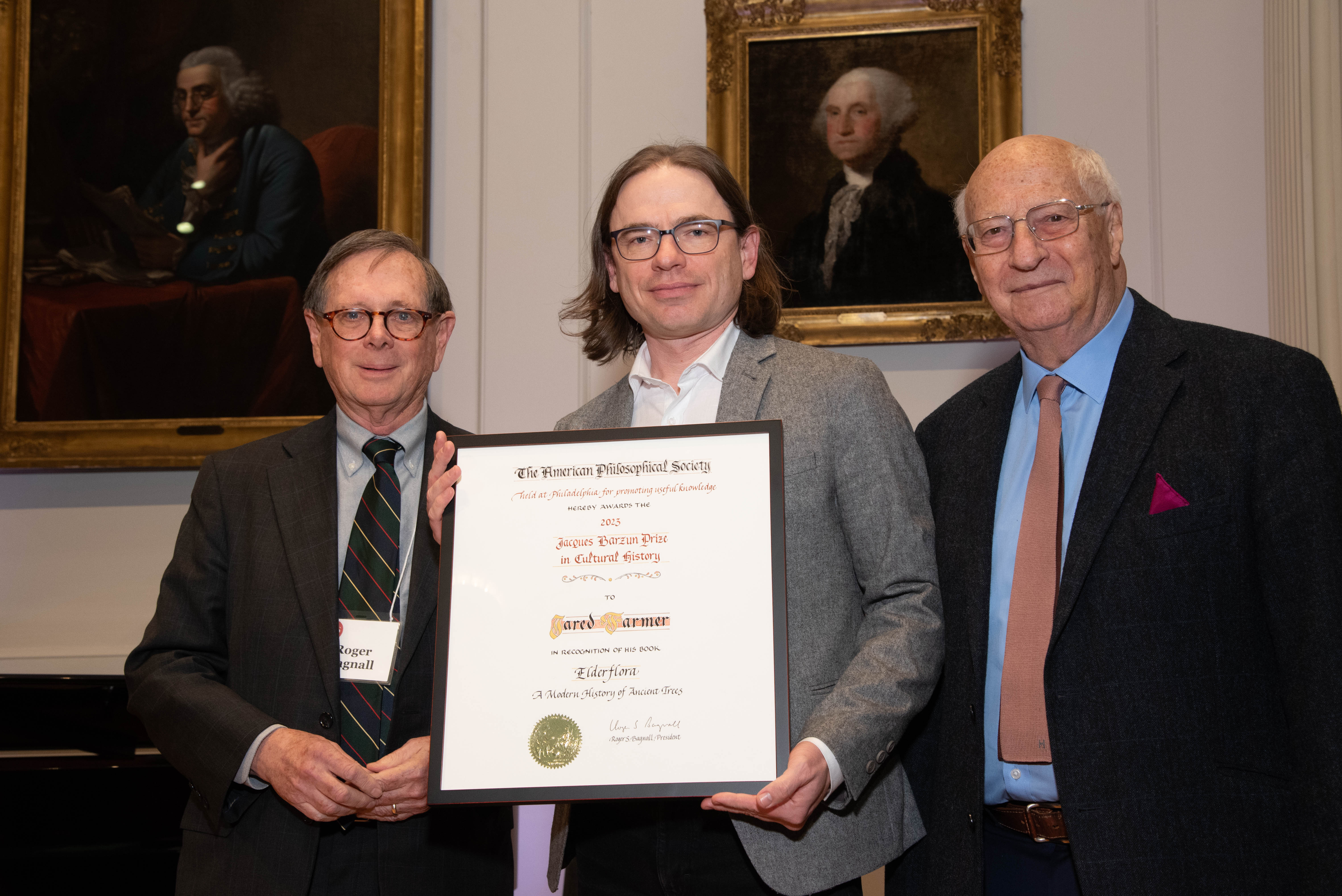2023 Jacques Barzun Prize

The recipient of the 2023 Jacques Barzun Prize in Cultural History is Jared Farmer, in recognition of his book, Elderflora: A Modern History of Ancient Trees (Basic Books). Dr. Farmer is Walter H. Annenberg Professor of History at the University of Pennsylvania. The 2023 Barzun Prize was presented at the Society's November 2023 Meeting.
At the opening of his book Elderflora: A Modern History of Ancient Trees Jared Farmer suggests that his twin subjects are ‘curiosity and care’. Later he adds the word ‘mourning’, which he sees as ‘at root an act of care’. The pun is part of the project, a gesture towards the different kinds of attention humans have given to trees over time and because of time. ‘People cherish big trees, old trees, and especially big old trees. Except when they don’t’. Professor Farmer has in mind not only past and present worlds but ‘the next new world... when gardens must grow in our ruins’.
The book takes us on a series of extraordinary journeys. We learn about a sequence of tree species, from cedar to baobab; the long life of the yew in English graveyards; German explorations of Mexican dragon trees; lost tree worlds of Pacific countries; the fate of sequoias in the American West; the life and career of Edmund Schulman, ‘whose quest for arboreal longevity mirrored his academic precarity’; new discoveries of ancient life; ancient trees about to die.
Trees can always surprise us, Professor Farmer suggests. At any moment our sensibilities may be ‘staggered’ by ‘a threefold combination: size plus age plus rarity’. Playing with the familiar idea of a ‘long’ century - one that also occupies patches of the time before it and after it - Professor Farmer says his book ‘concerns the longest nineteenth century’, when consciousness was ‘pulled... far backward in linear time, and, simultaneously, when the energy transition to fossil fuels hurtled human impacts far into the future’. One of the many interesting implications of this perspective is that science finds itself merging with philosophy. ‘The category “oldest known” is less biological than epistemological - a subset of the oldest knowable trees... that can be absolutely dated all the way back to their first year of growth’. In this world, both more resilient and more endangered than we think, trees ‘have an ethical claim... Nothing could be more pragmatically sacred’. To respect this claim is to be what Professor Farmer calls ‘timeful’, meaning the opposite of what we also often are, obsessed with quantifying. ‘We store our quantifications in the cloud, and we continue to lose our planet’. On a similar perch between fear and wish he says, ‘I hope to say something hopeful, or at least anti-hopeless, about linear time’. Many of us will want to tell him that he more than amply succeeds.
The Jacques Barzun Prize in Cultural History is awarded annually to the author whose book exhibits distinguished work in American or European cultural history. Established by a former student of Jacques Barzun, the prize honors this historian and cultural critic who was elected a member of the American Philosophical Society in 1984.
The selection committee consisted of Michael Wood (chair), Charles Barnwell Straut Professor of English and Comparative Literature, Princeton University; David Hollinger, Preston Hotchkis Professor Emeritus, University of California, Berkeley; and Robert B. Pippin, Evelyn Stefansson Nef Distinguished Service Professor, Committee on Social Thought, Department of Philosophy, University of Chicago.
